When writing a book, what are the turn-offs for a reader? SPR editor Cate Baum reveals some of the no-no’s she’s come across on her literary travels in self-publishing.
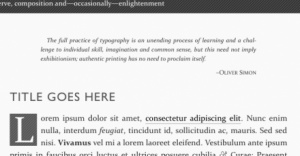
1. Epigraphs
The unnecesary epigraph, that is, the quote from the cheesy and cliched favorite writer gleaned from Goodreads to make the writer appear erudite and witty, is rife in self-published books. Unfortunately, most of these attempts only have the effect of looking cheap, snarky and tired, as well as having the potential to show up the author’s own writing on the very next line.
So many books open with Gandhi, Shakespeare, Mandela, Poe, Wilde, Lewis, Defoe and The Bible to mention a few, that the same old quotes I see (more than you know) have almost become as worn out as those Einstein/Marilyn Monroe memes on Facebook, or the Elvis beachtowel, or the “All I got was this lousy t-shirt” t-shirt. You can see the classics here.
If you use an epigraph, ask yourself why are you using it? Because if it’s to make you look cool, forget it.
2. Loads Of Dialogue
When you use loads of dialogue you have to ask yourself, “Am I a novel writer or a playwright?” Maybe if your book is filling up with conversation after conversation you’re meant to be writing for the stage, especially if you keep getting your characters to talk openly about their inner feelings all the time, or they describe scenery and people to each other, and maybe if you’re a very sociable sort that might like to see your characters performed. There are many novelists turned playwrights, and it’s a nice visceral gig, if you can get it. If you truly want to be a book writer, try breaking these tides of speech down with some narration.
3. Characters That Have Personality Disorders

Dinner For Schmucks (2010)
If your characters are flying off the handle because you need to move the plot arc, you’re going to end up with a motivation mess. Your characters need to relate to each other appropriately.
Let’s take the 2010 film script for “Dinner For Schmucks,” which has to be the most ridiculous example of characters acting in ludicrous ways to service the inevitable storyline. Tim is invited to a dinner party by his boss, at which everyone brings a “schmuck” to make fun of.
When his fiancee Julie hears about this, she orders him not to attend. When his ex turns up, a series of unfortunate events leads Julie to split up with Tim, voila, the conflict of the movie. Now, I don’t know about you, but even as a woman I was screaming at the screen that this Julie is a high-maintenance bitch whom Tim should dump, and find himself a girl with a sense of humor that doesn’t dictate his life, because she badgers him to a nub throughout the movie. I was disgusted he married her at the end.
Tim is the schmuck, his girlfriend is an uptight princess, and the “schmuck”, played by Steve Carrell, is such a nice, intelligent guy that he’d never bother with any of them ever again – and yet, they all end up in a grinning pile at the wedding, neatly paired off. You can just about get away with this kind of Hollywood silliness on screen, but on paper, make sure each character has a reason to go crazy, or else your book will lose the plot along with your characters.
4. Description Instead Of Narrative
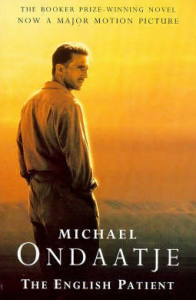 So, moving on from a badly-motivated movie plot, let’s talk about the trend of giving a book a compliment by saying, “This would make a great movie!” I would say this is a backhanded compliment, because it’s not really a compliment.We can see that a book is an entirely different medium to a movie script, so if you are writing your narrative as production notes for a director or actor, you aren’t writing a book.
So, moving on from a badly-motivated movie plot, let’s talk about the trend of giving a book a compliment by saying, “This would make a great movie!” I would say this is a backhanded compliment, because it’s not really a compliment.We can see that a book is an entirely different medium to a movie script, so if you are writing your narrative as production notes for a director or actor, you aren’t writing a book.
What does this mean? If we take this scene from the amazing novel The English Patient by Michael Ondaatje, we listen to Almasy’s story. We get the idea he speaks a certain way, and words like “thudded” show that it was painful for him without having to spell it out.
I fell burning into the desert. They found my body and made me a boat of sticks and dragged me across the desert. We were in the Sand Sea, now and then crossing dry riverbeds. Nomads, you see. Bedouin. I flew down and the sand itself caught fire. They saw me stand up naked out of it. The leather helmet on my head in flames. They strapped me onto a cradle, a carcass boat, and feet thudded along as they ran with me. I had broken the spareness of the desert.
Now take the same scene from the film script, by Anthony Minghella. I have formatted it as prose:
THE PILOT HAS BEEN RESCUED BY BEDOUIN TRIBESMEN. Behind them the wreckage of the plane, still smoking, the Arabs picking over it. A SILVER THIMBLE glints in the sun, is retrieved. Another man comes across A LARGE LEATHER-BOUND BOOK and takes it over to the Pilot. The Pilot is charred. His helmet has melted into his head. He’s oblivious to this, cares only about the woman who crashed with him. He twists frantically to find her. Two men pick him up and carry him across to a litter where they carefully wrap him in blankets. The Pilot is being carried across the desert. A mask covers his face. His view of the world is through the slats of reed. He glimpses camels, fierce low sun, the men who carry him.
There are so many books that write narrative in the style of a film script, as above, that it becomes soulless prose. Without the visual and audio elements to this script, it is not possible to garner the same eloquence possible with words on a page. A book needs to be autonomous in style. This maybe comes from so many writers watching movies instead of reading good books, or aiming for a movie adaptation, but books that get made into movies are high quality, well-loved, well-read and full of life on the page before they hit the screen. Train your brain to use words, not shorthand tricks for conjuring images in your reader’s mind.

The worst joke we could find at SPR
5. You-Had-To-Be-There Funny
Are you really capable of writing humor? I know, you’re known as the storyteller, or the joker, in the circles you move in, but beware: Many yarns told over a pot of whiskey to a drunken crowd of people that love you are very different when that tale gets written down. Why? Because you have to set about capturing the many elements that add up to entertaining a reader, often alone in a darkened room or crowded commuter train.
Stories that turn out to be “you had to be there” are going to be completely dull on paper.
Comedian Chris Rock said, “I work my jokes out the same way they do polls for the president. … If they work, they stay in the act, and if they don’t, they don’t stay.” Concentrate on being entertaining rather than full-on funny, and you’ll amuse.
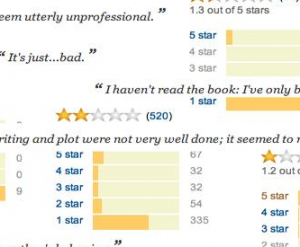 6. Page Turners That Are Actually Page Skippers
6. Page Turners That Are Actually Page Skippers
Lately I have seen reviewers incorrectly describing books as “page turners”, to mean the books are quick to read. Horrifyingly, it appears many readers are skippers. They pick up books and skim read them in order to write a review for kudos online. A tiny trip, I’m guessing, for a less than average life in a lonely town.
These “skipper” books that have started getting five stars on Amazon, sadly, seem to be books that fluff with guff. It makes no difference if the 250 pages are stuffed with 50 that talk about hair, tile color choice or chats about friends or family never again mentioned in the story, meaning like a soap opera, it’s possible to skip forward and have missed nothing.
However, these books soon drown in low-starred reviews when real readers grab ahold, just in case you were thinking about it…
 7. Badly Researched Writing
7. Badly Researched Writing
If you are insisting on writing a book about something you haven’t experienced first-hand, research needs to be done thoroughly. I lived in London for seventeen years and know it probably better than the back of my hand, so when an author sent a character on a walk from Buckingham Palace to London Bridge that took only a few minutes, I knew immediately they had never been there.
Another writer described a meal on the Champs Elysee in Paris looking out over the Seine, which is impossible because the avenue is flanked with trees and buildings on both sides in any reasonable location for a meal.
Historical detail can also catch you out. Can a washerwoman really be ironing in 13th century Wales? Can an English fisherman in Henry VIII’s time say “frickin”? Did a detective in 1989 use the Internet to crack a case? Be careful not to break your fictional universe. Google Earth, Google Maps and Wikipedia can be a great place to start.
8. Lists Instead Of Description
If you’ve established your character’s setting and relationship to the environment, don’t go making lists. Often I see characters described,
I was wearing blue jeans, pintuck shirt with stripes in red, a yellow watch that my grandmother bought me, and a pair of brown lace-up pumps from Ross. My blonde hair was in a ponytail.
This is very boring, and tells us nothing about the relationship of the character to their surrounds. Now, here are some great descriptions of clothing that give us information about the characters’ personalities:
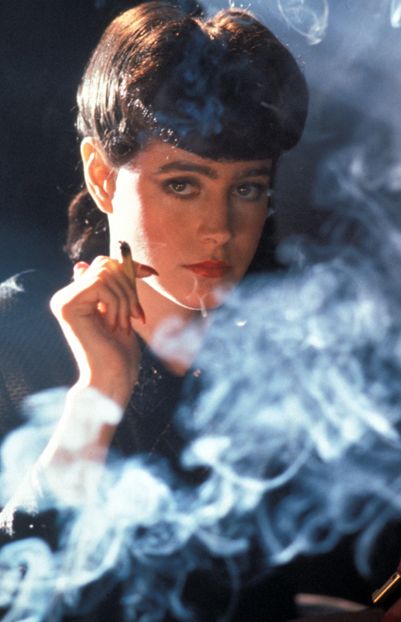
Sean Young as Rachel
Do Androids Dream of Electric Sheep? by Philip K. Dick – Rachael
Black-haired and slender, wearing the huge new dust-filtering glasses, she approached his car, her hands deep in the pockets of her brightly striped long coat. She had, on her sharply defined small face, an expression of sullen distaste.
The Great Gatsby by F.Scott Fitzgerald – Daisy Buchanan and Jordan Baker
The only completely stationary object in the room was an enormous couch on which two young women were buoyed up as though upon an anchored balloon. They were both in white, and their dresses were rippling and fluttering as if they had just been blown back in after a short flight around the house. I must have stood for a few moments listening to the whip and snap of the curtains and the groan of a picture on the wall. Then there was a boom as Tom Buchanan shut the rear windows and the caught wind died out about the room, and the curtains and the rugs and the two young women ballooned slowly to the floor.
And how’s this for a fantastic food description?
I Capture The Castle by Dodie Smith
Goodness, Topaz is actually putting on eggs to boil! No one told me the hens had yielded to prayer. Oh, excellent hens! I was only expecting bread and margarine for tea, and I don’t get as used to margarine as I could wish. I thank heaven there is no cheaper form of bread than bread.
9. No Visuals Included
Writers that get carried away with their characters can sometimes forget to tie the scenery down, or even what their characters look like. Establishing basics early on, unless there’s a reason in the story not to, is key to good storytelling. Don’t let your readers guess their surroundings; it’s frustrating and can be a turn-off. You’ll note the authors tie the descriptions tightly to the soul of their character.
Slaughterhouse Five by Kurt Vonnegut – Billy Pilgrim
Billy is spastic in time, has no control over where he is going next, and the trips aren’t necessarily fun. He is in a constant state of stage fright, he says, because he never knows what part of his life he is going to have to act in next. Billy was born in 1922 in Ilium, New York, the only child of a barber there. He was a funny-looking child who became a funny-looking youth-tall and weak, and shaped like a bottle of Coca-Cola.Ender’s Game by Orson Scott Card – Peter
Ender did not see Peter as the beautiful ten-year-old boy that grown-ups saw, with dark, tousled hair and a face that could have belonged to Alexander the Great. Ender looked at Peter only to detect anger or boredom, the dangerous moods that almost always led to pain.The Perfect Storm – Sebastian Junger – Gloucester, Mass.
There are houses in Gloucester where grooves have been worn into the floorboards by women pacing past an upstairs window, looking out to sea.The Dead – James Joyce – Ireland in snow
Yes, the newspapers were right: snow was general all over Ireland. It was falling on every part of the dark central plain, on the treeless hills, falling softly upon the Bog of Allen and, farther westward, softly falling into the dark mutinous Shannon waves. It was falling, too, upon every part of the lonely churchyard on the hill where Michael Furey lay buried. It lay thickly drifted on the crooked crosses and headstones, on the spears of the little gate, on the barren thorns. His soul swooned slowly as he heard the snow falling faintly through the universe and faintly falling, like the descent of their last end, upon all the living and the dead.
You’ve decided that you’re in your retirement years and you look back on your life with rose-tinted specs. You’ve had some experiences, eh? So how about a memoir describing all those times you had? If you want to write a memoir for yourself, go for it, why not?
Here’s the reality check.
Unless you really have had a very unusual life, such as our SPR Awards Winner Christine Osborne, who is on first-name terms with the Queen of England after photographing the remotest areas of Africa, or Runner-Up Bill Zarchy, a Hollywood cameraman who traveled the world meeting actors and famous directors, your life is probably not that interesting to anyone who doesn’t know you. Wittering on about “interesting” family members and their foibles may seem fun to your immediate circle, but there’s not a lot for anyone else.
Unless like writer Karl Ove Knausgaard (who has managed to pull off talking about such exciting topics as boiled potatoes, relieving himself in the woods and taking out the trash to accolades) you have a magnificent literary style that’s going to blow people away, be very careful assuming what’s interesting to others, or you might find yourself with a real lemon of a book that friends and family only buy to be polite.
Unfortunately, there’s a lot of under-planned writing about, so really consider the time and energy you’ll expend, and what result you are looking for before starting off on your literary journey. Writing a book can be a huge disappointment or a great experience depending on how you look at it. Main take-home? Be realistic, don’t cut corners, and enjoy the ride!
Get an Editorial Review | Get Amazon Sales & Reviews | Get Edited | Publish Your Book | Enter the SPR Book Awards | Other Marketing Services


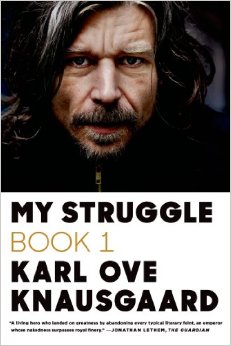




















Excellent reminders for us all. Thanks, Cate.
Thanks!